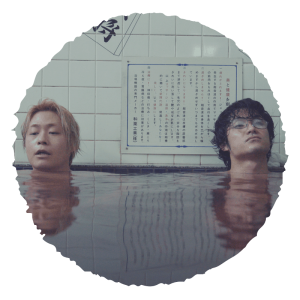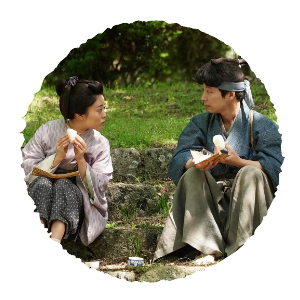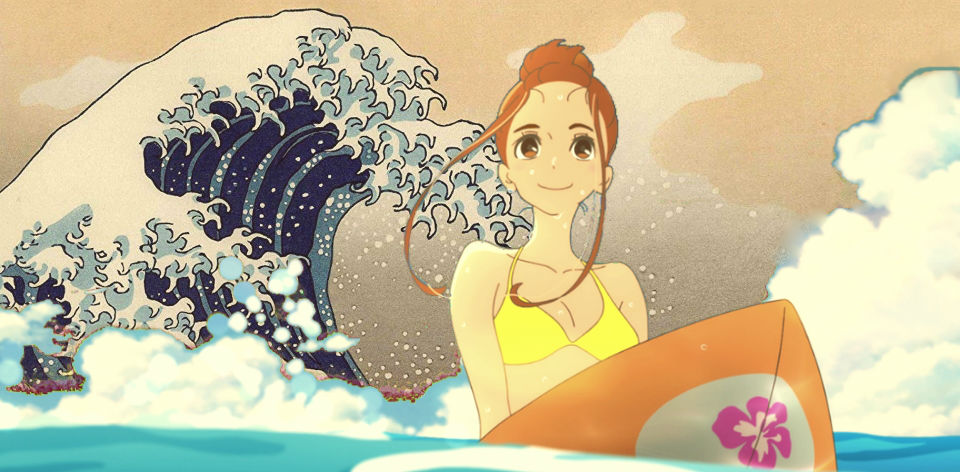At the end of the decade, the Japanese Film Festival showcases films of all sizes that pave the way to the future.
As we just about wrap up another ten years of Japanese cinema, the 23rd Japanese Film Festival in Australia marks a resurgence in international recognition of Japan’s idiosyncratic charms.
After all, it’s a period where Hirokazu Kore-eda’s Shoplifters (2018) saw the first Japanese Palme d’Or winner since Shohei Imamura’s The Eel (1997), while Makoto Shinkai‘s Your Name (2016) crossed demographic boundaries.
Looking back to JFF 2010 – which saw a reported 7,700 people and sold out sessions such as Hanamizuki, Confessions (now a cult favourite) and The Summit – the decade promised a smorgasbord of film discovery. Writing for METRO Magazine the following year about the 2011 festival (in a piece called ‘Laughter on the Road to Recovery’), I noted the festival’s numerous comedies could be “seen as part of the international healing process in the wake of the devastating March 2011 Tohoku earthquake and tsunami.” Over the course of the following eight years, Japanese cinema became a little more noticeably inward looking.
Think local, act local

So, the final Japanese Film Festival of the 2010s followed this broader trend in Japanese cinema, something James Hadfield of The Japan Times has termed “closed country cinema.” It has become more common to adapt existing TV or manga properties, ones that may not translate outside of the confines of FujiTV, TBS or the billboards of Akihabara and Ikebukuro.
Case in point this year were adaptations of Kakegurui, Masquerade Hotel, and the pseudo-commercial Brave Father Online – Our Story of Final Fantasy XIV. Kakegurui, for example, has already proven itself in the Japanese marketplace (and abroad) as a manga, anime series and live-action drama series, so the film does an excellent job “recreating reactions and textual styles that should really only work on page or in animation.” Masquerade Hotel is based on a successful series of Japanese novels, while Final Fantasy has been running as a video game series since 1987.
Yet there are those films that take a distinctly introspective approach as well. NOISE (ノイズ) flips the script on the tourist centre of Akihabara, with debut director Yusaku Matsumoto showcasing a darker side of electric town as she explores three youths trying to get by several years after the Akihabara Massacre in 2008.
Fly Me to the Saitama, based on Mineo Maya’s manga, is “the most Japanese of Japanese films” due to the sheer number of in-jokes and cultural references, the people who will get the most out of this will unquestionably be locals or people who spend a lot of time in Tokyo. Or maybe those of us who just happen to love its cinema.
Little love songs

‘Little’ and ‘love’ were key words for several films screening this year. In fact, at least two of them had the word in the title!
Little Nights, Little Love and Just Only Love were two films on offer from rising star indie filmmaker Rikiya Imaizumi, both of which deal with love and city life in an understated way. Little Nights, Little Love has a petit hyperlinked narrative that explodes the idea of relying on giant signs to change your life, focusing instead on the casual interactions between people. Or as one character aptly puts it, “Don’t diss the cogs.” Similarly, Shô Miyake’s And Your Bird Can Sing doesn’t so much concentrate on an overarching narrative so much as depicting floating lives as they intersect and interact in this contemporary adaptation of a modern classic novel.
The other ‘little’ film is Kojiro Hashimoto’s Little Love Song, a conscious assault on the tear ducts manages to endear through an enthusiastic cast and a catchy set of soft rock songs. It’s also set against the backdrop of a US Army Base, continuing the theme of very regional Japan-specific issues. Other musicals JK Rock and Dance With Me are less overtly political, alternatively telling the fictional origins of a real band that formed out of a fake one (got it?) and charming our pants off with their old school dance numbers.

Not all of the indie films were as crowd-pleasing, and two films in particular consciously challenged audiences. Melancholic is a strong debut from Seiji Tanaka, shot on a cobbled-together ¥3 million (or less than US$28,000) and managing to surprise us across multiple twists that push our notions of morality. Yet it’s Shinzo Katayama’s Siblings of the Cape that might be too uncomfortable for many viewers, dealing as it does with a woman with an intellectual disability being repeatedly pimped out by her brother. Conversations I’ve had around this have been divisive.
From love to friendship, Rent A Friend deals with the (very real) premise of rentable friends in Japan and sets this quirky romantic drama off on the right foot, yet even the short runtime can’t save this from getting back onto the rom-com rails very quickly. SAINT☆YOUNG MEN 2nd Century shows the ultimate friendship: Jesus and Buddha. Continuing the adventures of the divine duo (played by Kenichi Matsuyama and Shota Sometani) living in modern day Tokyo, including a pilgrimage to Akihabara and an extension of the low-fi two-hander in a small room we’ve seen in their previous work.
Kingdom of hits
At the other end of the scale Kingdom (another manga adaptation) played as a big-scale action-adventure that is being programmed for broader appeal. In fact, Funimation are planning a summer 2020 screening in North America, and it’s not hard to imagine that there’s a market for a film from the director of Gantz, Bleach and Inuyashiki.

Samurai Shifters is a deceptively large film, filled with a stellar cast and some meticulous production design to make this semi-comedic adaptation of Akihiro Dobashi’s novel better than the average bear.
Meanwhile, with Ride Your Wave, director Masaaki Yuasa (Lu Over the Wall, Devilman Crybaby, and the sublime Night is Short, Walk on Girl ) makes a (mostly) grounded romantic comedy. What’s even more surprising is just how well it works, and I don’t mind saying I had a lump in my throat for much of it.
Still on animation, Detective Conan: The Fist of Blue Sapphire is the twenty-third (!) film released in the long-running anime and film series based on the Case Closed manga. One tends to feel that if you’re invested at this point, you’re unlikely to quibble much now.
Favourites
So, if I had to whittle down all these films to a personal Top 5, I’d probably tell you to go look at my Letterboxd account. Failing that, here’s a list in some kind of order:
An honourable mention is A Banana? At This Time of Night?, a film title I’ve been obsessed with ever since I saw the poster on AsianWiki in October last year. Yuko Hakota’s debut film Blue Hour heralds the arrival of a strong new voice on the scene in a story that looks at whether you truly can go back home.
A pathway to the future

With social media and think pieces constantly telling us about the blockbuster incursion, the Japanese Film Festival is a timely reminder that there are plenty of opportunities to see Asian indie cinema if you go looking for it. Indeed, the major cities have a new release film playing almost every week.
At 30 films, the JFF is a fair distance from the 3 free films it screened back in the mid-1990s. Yet even this expanded roster can’t cover everything. There are a few choices – including Mika Ninagawa No Longer Human and Makoto Nagahisa’s We Are Little Zombies (which played at MIFF) – that I would have loved to see get a local release.
Nevertheless, there are so many new favourites were found this year. Throughout 2019, The Reel Bits has covered several festivals – from the local Sydney Film Festival and Melbourne International Film Festival – not to mention the more specific international ones like New York’s Japan Cuts and the New York Asian Film Festival. The Japanese Film Festival can proudly sit next to these programs as not just one of the best festivals in Australia, but one of the strongest and longest-running festivals in the world. Here’s looking forward to 2029 and beyond.
You can see The Reel Bits’ entire coverage right here on our JFF 2019 stream. The Reel Bits proudly keeps Asia in Focus throughout the year.




